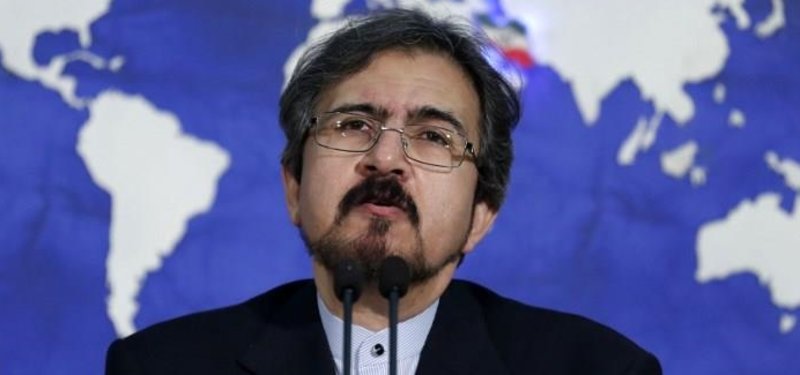
Iran: If Trump wants to talk, he'll have to call
- World
- AP
- Published Date: 12:00 | 16 July 2018
- Modified Date: 05:34 | 16 July 2018
Iran said Monday that if President Donald Trump wants to negotiate after pulling the United States out of the international deal meant to prevent Tehran from developing nuclear weapons, he'll have to initiate the call.
The remarks by Foreign Ministry spokesman Bahram Ghasemi came after Trump last week said that with the U.S. increasing sanctions on Iran, "at a certain point they're going to call me and say 'let's make a deal,' and we'll make a deal."
Ghasemi said, however, "maybe someday he will call Tehran and ask for negotiations — this is more likely."
If Trump calls, it's not clear whether anyone will answer, with Iran's top leadership rejecting talks with the U.S.
Trump in May said he was unilaterally pulling out of the agreement, known as the Joint Comprehensive Plan of Action, because he felt it wasn't strong enough and didn't cover other issues of concern to the U.S. and its allies, such as Iran's military influence in the Middle East and a ballistic missile program.
The five other world powers in the agreement, Germany, Britain, France, Russia and China, as well as the European Union, have been negotiating with Iran over how to keep it in the deal, which provides incentives in exchange for not pursuing a nuclear weapon.
Iran's economy is already suffering from the sanctions that Washington re-imposed after walking away from the nuclear agreement, and the U.S. has threatened to punish companies from other nations that continue doing business with Iran.
Iranian Foreign Minister Mohammad Javad Zarif said Monday on Twitter that Tehran had filed a complaint with the International Court of Justice to "hold US accountable for its unlawful re-imposition of unilateral sanctions."
"Iran is committed to the rule of law in the face of US contempt for diplomacy & legal obligations. It's imperative to counter its habit of violating int'l law," he posted.
Zarif did not elaborate but Iranian officials have repeatedly accused the U.S. of imposing illegal sanctions on Iran after pulling out of the nuclear deal as well as breaching the deal before the pullout.
The ICJ did not immediately respond to a request for information on the Iranian complaint.
On Sunday, Iran's Supreme Leader Ayatollah Ali Khamenei called for "timely, strong and incisive" action as a show of strength to the rest of the world, "particularly Americans."
Khamenei, who has final say on all state matters, did not mention anything specifically.
He also said the country "should not tie" its economy with European nations' promises for keeping the nuclear deal in force.

